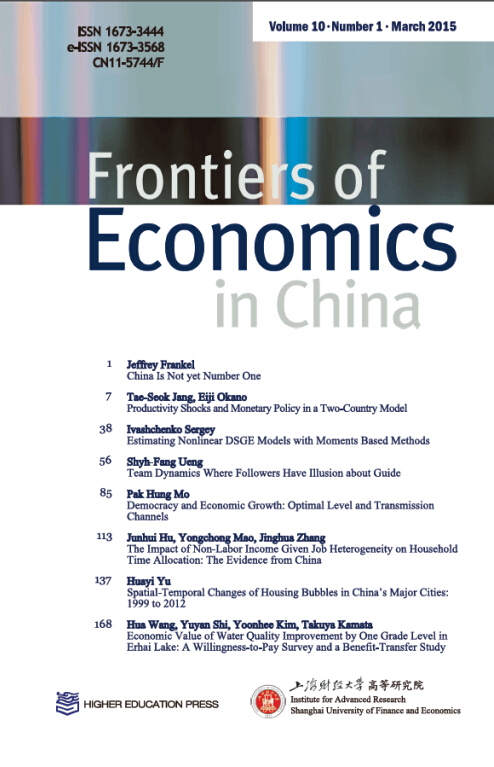腐败新闻与企业投资:来自中国的证据
IF 1.5
4区 经济学
Q2 ECONOMICS
引用次数: 0
摘要
我们研究了企业腐败审查是否会影响中国的企业投资。腐败新闻指数(CNI)通过跟踪2000年至2016年期间在上海和深圳证券交易所交易的所有公司的所有有关腐败的新闻报道,开发了一个包含公司特定腐败审查措施的腐败新闻指数。我们发现,CNI的标准差增加与投资的适度和短暂下降有关,范围从2%到10%,对国有企业的影响更大。我们探索了两个可以解释cni -投资效应的渠道:(i)外部融资成本的转变和(ii)与企业腐败审查相关的政治不确定性的上升。我们的研究结果表明,CNI降低了外部融资的成本,指出了腐败清理的一个有益方面。然而,在省级政治变动存在的情况下,CNI对投资的影响被放大,为政治不确定性通道提供了支持。研究结果还表明,自2013年以来,CNI对投资的负面影响显著下降,这支持了清廉的长期收益大于政策不确定性带来的短期成本的观点。本文章由计算机程序翻译,如有差异,请以英文原文为准。
Corruption News and Corporate Investment: Evidence from China
We examine whether corporate corruption scrutiny affects corporate investment in China. A corruption news index (CNI) containing firm-specific measures of corruption scrutiny was developed by tracking all articles in the press about corruption for all firms trading on the Shanghai and Shenzhen stock exchanges between 2000 and 2016. We found that a standard deviation increase in CNI is associated with a modest and short-lived decline in investment, ranging from 2 to 10 percent, with a stronger effect among SOEs. We explore two channels that can explain the CNI-investment effect: (i) a shift in the cost of external finance and (ii) a rise in political uncertainty connected with corporate corruption scrutiny. Our results indicate that CNI lowers the cost of external finance, pointing to a beneficial aspect of corruption cleanup. However, the effect of CNI on investment is amplified in the presence of provincial political turnover, providing support for the political uncertainty channel. The results also indicate that the negative effect of CNI on investment has significantly declined since 2013, supporting the proposition that the long-term benefits of corruption cleanup outweigh the short-term costs associated with policy uncertainty.
求助全文
通过发布文献求助,成功后即可免费获取论文全文。
去求助
来源期刊

Frontiers of Economics in China
ECONOMICS-
CiteScore
1.20
自引率
0.00%
发文量
373
期刊介绍:
Frontiers of Economics in China seeks to provide a forum for a broad blend of peer-reviewed academic papers of economics in order to promote communication and exchanges between economists in China and abroad. It will reflect the enormous advances that are currently being made in China in the field of economy and society. In addition, this journal also bears the mission of introducing the academic achievements on Chinese economics research to the world.
 求助内容:
求助内容: 应助结果提醒方式:
应助结果提醒方式:


